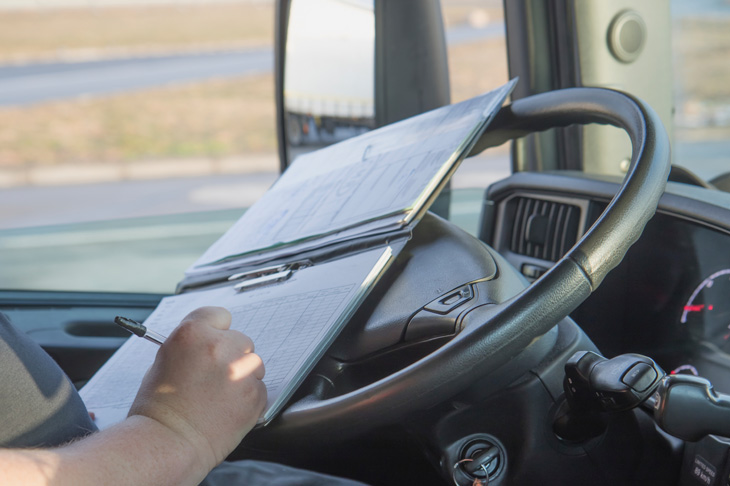The FMCSA's Ruling on Electronic Logging Devices

The old way of keeping paper records for your logs will soon be a thing of the past. The Federal Motor Carrier Safety Administration (FMCSA) announced their final ruling requiring the adoption and use of electronic logging devices (ELDs) by all drivers who are currently required to complete paper logs. As most of us know, in July 2012, Congress passed a law that required the FMCSA to mandate the use of ELDs. That has now been passed, and by December 2017, all drivers currently required to complete paper logs will need to be compliant.
The final ruling has a lot of aspects to it. We wanted to break down some of the most important parts and provide insight into how this ruling might affect you.
- Grandfathered Equipment. If you are currently using ELD-like devices that meet the standards of the Automatic On-Board Recording Devices, you are able to continue using these devices until December 2019, providing two extra years before you are required to adopt ELDs. Also, with software updates or other modifications, you may be able to keep using these devices after the 2019 deadline.
- Short Haul Drivers Are Exempt. If you are a motor carrier who meets one of the short haul exemptions in section 395.1(e), you are not required to use an ELD. If this is you, you can continue operating as normal.
- Monitor Your Location. At every change-of-duty status and at 60-minute intervals, your ELD is required to record your vehicle’s location. When you are on duty, the device will monitor your location within approximately one mile. When you are off duty, it will record the location within ten miles to help protect the privacy of the driver and to help prevent harassment.
- Electronic Data Transfer. All ELDs must have the ability to transfer data electronically. There are two acceptable methods of data transfer: the first is connecting the ELD to a wireless web service, and the second is utilizing Bluetooth and/or USB 2.0 transfers. Either way, you must be able to show a roadside inspection officer a graph of your hours to prove you are compliant. The graph can be displayed on the ELD or a hardcopy printout.
- Device Testing and Purchasing. All ELD manufacturers must go through a process to get their devices certified. The FMCSA will create a public registry of compliant devices to help you select a device that meets the requirements of the ruling.
- Editing Your ELD reports. As a driver, you will be able to make edits and annotations to your electronic logs. These edits will not take the place of or remove any of the original record, which will remain in the system for tracking purposes. Employers can also request edits or annotations to records, but the driver will have to approve before they go into the log.
There are additional exceptions, such as for drivers who use paper logs no more than 8 days during any 30-day period and for drivers of vehicles manufactured before model year 2000. For a full outline of the ruling, check out the FMCSA website.
An insurance company that cares about you and insuring the things you wish to be insured.
Get a Quote> Find an Agent>

